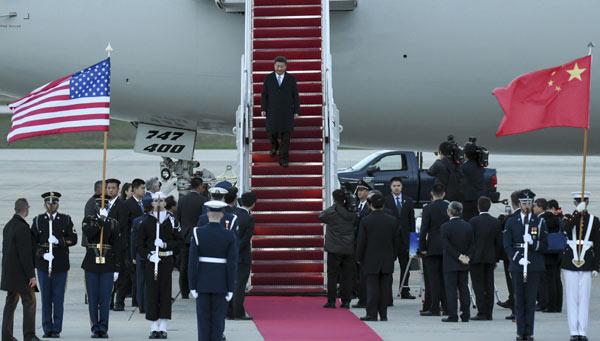 |
|
Chinese President Xi Jinping arrives on his official plane to attend the Nuclear Security Summit meetings in Washington, on the tarmac at Joint Base Andrews, Maryland March 30, 2016. [Photo/Xinhua] |
China, according to the joint statement, also "reaffirms its readiness, upon the request of respective countries, to convert all remaining Chinese-origin MNSRs worldwide."
Recognizing the need for strengthened international cooperation to counter nuclear smuggling, China and the United States reiterated their "enduring commitment to prevent terrorists, criminals or other unauthorized actors from acquiring nuclear or other radioactive materials."
The two sides "will continue to coordinate efforts to strengthen counter nuclear smuggling capabilities and share best practices with the international community, taking full advantage of the training programs sponsored by the China Customs Training Center for Radiation Detection," said the statement.
Furthermore, Beijing and Washington expressed satisfaction on "the fruitful cooperation between the two sides in enhancing the security of radioactive sources, in particular regarding recovery of disused sources and transport security of radioactive sources," and pledged to further strengthen cooperation in this regard and facilitate the sharing of experiences and best practices with other countries.
Stressing that "strong communication and cooperation are essential to nuclear security," the two countries committed themselves to continuing strong support for the work of relevant international agencies on nuclear security in accordance with their respective mandates.
The NSS process, initiated by Obama and headlined by a biennial leaders' meeting since 2010, will come to an end in its current format after the fourth summit, though nuclear security is faced with increasingly grave and complicated challenges.
Under such circumstances, China and the United States expressed their "strong commitment" to addressing the evolving nuclear security challenges through sustained efforts after the current NSS process concludes, said the joint statement.